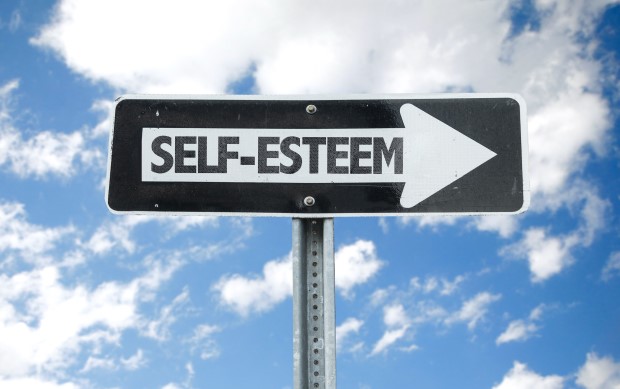
Self-esteem is often defined in terms of self-evaluation: how do we rate ourselves and our abilities? But evaluative definitions lead to misconceptions, even among psychologists. Have you ever known someone who bragged openly and frequently about how great he was, belittling others in the process? Did you think, “That guy has way too much self-esteem”? That’s not self-esteem; it’s arrogance, conceit, or narcissism. You can easily have too much of those, but there’s no such thing as too much self-esteem. That would be like too much health; it makes no sense.
True self-esteem is not based on achievements, abilities, or appearance. If you point out their accomplishments or positive personal qualities, people with low self-esteem can agree with you, intellectually. “Yes, I guess I am loyal to my friends.” “Sure, I’m a decent golfer.” But such assessments don’t really touch them at their core. Their low self-esteem remains stuck where it is, because it goes deeper than the level of behavior, which is where achievements and good deeds reside.
The Opposite of Shame
Healthy self-esteem can best be described in terms of its opposite, which is baseless shame. What we call low self-esteem is experienced as a chronic feeling that something is wrong with us. Despite the absence of any firm evidence, there it is anyway, the secret slogan of low self-esteem: There’s something wrong with me. If your self-esteem has been injured, you’ll recognize this sinking feeling. Its real name is baseless shame. It’s the type of shame that lives at the core of a person, feels like a part of her, but has no basis in reality.
Shame is imposed on all of us, mostly unavoidably, by normal socialization and conditioning. “Don’t eat that! It’s dirty.” “Would you stop that racket?” “Look what you did to your dress.” Because our behavior doesn’t always get a positive reaction, we learn early in life that we’re acceptable if we meet certain conditions. When we fail, we develop shame. It can be argued that a certain amount of shame is good for us; it keeps us from doing things that are considered antisocial, inconsiderate, or immoral. You might call this other type “functional shame.” It serves the function of steering us away from inappropriate behavior.
Functional shame is not the problem. The underpinning of low self-esteem is a vast store of baseless shame — shame for which there is no good reason. Where does all that shame come from, if it has no basis? And why is it still hanging around now that we’re not children anymore?
Parts of ourselves that are damaged when we’re young don’t spontaneously regenerate. Instead, they become more fractured over time. What you were able to tolerate at age twenty-five can feel overwhelming by the time you’re sixty-five. Self-esteem is one of these components that don’t spontaneously heal. I wonder how many midlife crises are really emotional wounds from childhood that surface after a prolonged period of neglect. But there is a way forward, and for many it means confronting the devastating lie “There’s something wrong with me.”
You started your life with healthy self-esteem. Infants generally enter the world emotionally intact. They don’t think they’re better than anyone else, but they don’t think they’re worse, either. They don’t assume everything they do is great; you’ll notice they get very upset if they fail at some task they’ve set for themselves. They just haven’t been injured enough yet to believe there’s something inherently wrong with them.
People with healthy self-esteem trust in their basic goodness, and although they strive to do well, they don’t expect themselves to be great at everything. They try their best when they do something, and they refuse to see failure as proof that they’re unworthy human beings. Instead, they see it as a signal that they need to do something differently next time. For these lucky folks, trying and failing builds self-esteem better than not trying at all.
Feeling Is Healing
Parents hate it when their children are in pain; yet when their children hurt them, the human being inside the parent may feel like lashing out in self-defense. What a complex experience. You love your child, but she’s wounding you with her cruel or unreasonable behavior. She’s your child — younger, with less experience and maturity — yet she seems so powerful. If you feel a kaleidoscope of emotions, you’re normal. Being human means having emotions, reacting to the ups and downs of fate as well as to your own shifting perceptions.
Excerpted from the book Reconnecting with Your Estranged Adult Child. Copyright ©2020 by Tina Gilbertson. Printed with permission from New World Library — www.newworldlibrary.com.


